Agriculture & Environment
Climate change and resilience in Africa: 2 PhD positions in Uganda
Published
4 months agoon
By
Mak Editor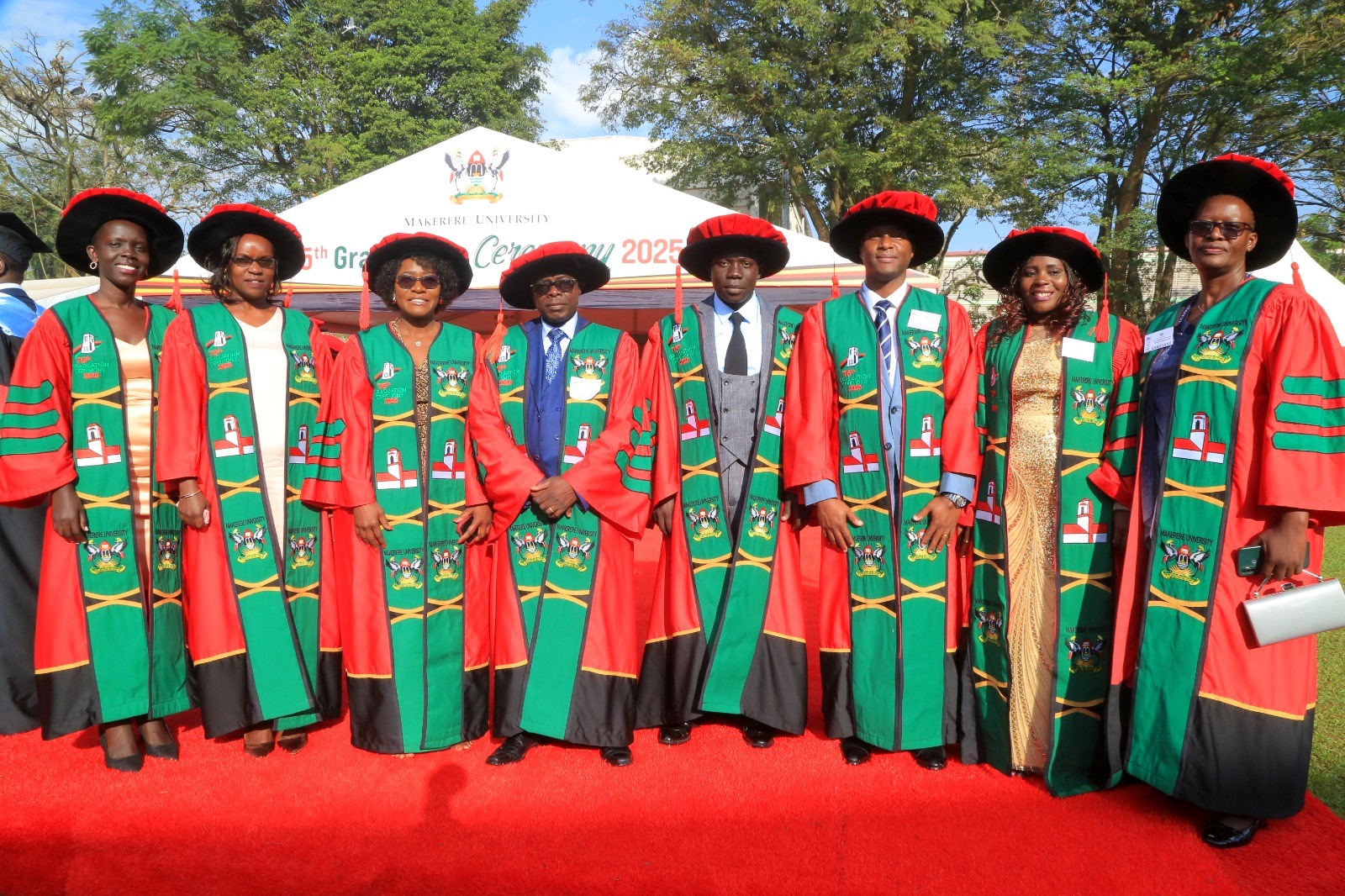
Are you passionate about tackling climate-related challenges and empowering climate-affected communities in Africa? Do you aspire to complete academic research with a real-world impact? Join Climares, a groundbreaking research project that supports the climate resilience of at-risk populations in five African countries. For our work in Uganda, we are looking for 2 PhD candidates who will work with either smallholders or refugees and other stakeholders using innovative, participatory research methods. The positions are initially for one year, extended, conditional upon good performance, to a maximum of five years, on a full-time basis. The positions are based in Makerere University, Uganda, Department of Geography, Geoinformatics and Climatic Sciences. If successful, the applicants will receive a joint/dual degree with Wageningen University, The Netherlands [PhD A- smallholders] or Erasmus University Rotterdam [PhD B- refugees].
Expected starting date: July 1st – August 1st, 2025, or as soon as possible thereafter.
Job description – what you will do?
You will be part of an exciting new research project called Climares (www.climares.nl). Climares is a consortium of 7 African and 7 Dutch universities, along with societal partners, working in the Democratic Republic of Congo, Mozambique, Morocco, Senegal, and Uganda. Our mission is to support at-risk populations—smallholders, fisherfolk, urban outdoor workers, pastoralists, and displaced people—by transforming weather and climate data into actionable insights that enhance resilience and enable early adaptation. Climares uses participatory digital and in person research, co-created climate storylines and advocacy methods to ensure that weather and climate information becomes accurate and actionable and integrated with local knowledge systems.
Within the scope of the project, you are expected to develop your own PhD research focus and thematic interest, in close collaboration with your supervisors. The supervision team consists of African and Dutch academics with a range of research areas. You will also be part of an interdisciplinary group of eleven PhD researchers, who are recruited from the five African countries and who will be the core of the Climares project. The PhD researchers will work independently and in collaboration, by sharing knowledge, skills, and experiences.
The PhD projects in Uganda centre around action-oriented research with communities and other stakeholders, such as civil society actors, private actors, and government representatives. The projects aim to support the agency and resilience of communities by creating and supporting Knowledge∞ Action (K∞A) networks. These networks are composed of all stakeholders that have an interest in the resilience of a population group, including affected communities. As a PhD researcher, you will be responsible for setting up and facilitating these networks over a five-year period, and for collecting data on the process. For the duration of the project, you will be part of the Climares Academy that meets online for one day per week for training, supervision and meetings with your peers.
- Project A (SMALLHOLDERS) will focus on the climate-related challenges and innovation strategies of smallholders engaged in cash crop production, notably highland coffee cultivation.
- Project B (DISPLACEMENT) will focus on refugees and other forcibly displaced persons in Uganda, and their resilience strategies in relation to their experienced climate-related threats and uncertainties.
Where you will work
These PhD positions are based in Uganda, with occasional travel to the Netherlands (or other countries) for training purposes and consortium meetings.
The PhD trajectories will start with an intensive two-month training in the Netherlands. After this, you will return to Uganda to spend significant periods of time with either smallholders or refugees and to start working on the Knowledge∞Action (K∞A) networks. During this period, you will attend online training and reflection meetings one day per week.
You will be a member of the Climares PhD school, called the Climares Academy. Training will include academic courses as well as training on skills and content required for Climares, and individual career development support. Training will be provided by members of the Climares consortium, including academic partners and societal partners such as the Red Cross Red Crescent Climate Centre, Deltares, and the Royal Netherlands Meteorological Institute. PhD candidates will receive cutting-edge teaching and mentoring from a diverse range of experts, combining theoretical knowledge with practical applications.
Supervision and degree
The supervision teams for these PhD projects will consist of scholars from Makerere University and Wageningen University for PhD -A and scholars from Makerere and Erasmus University for PhD-B. With your supervisors, you will develop a detailed PhD project plan, including research activities and milestones. You will also jointly develop and regularly monitor your own career development plan.
You will be admitted to and graduate from Makerere University, as well as – through joint/dual-degree arrangement – from Wageningen University (PhD-A] and Erasmus University [PhD-B] in the Netherlands.
Requirements
We are looking for an interdisciplinary team of PhD researchers. We therefore invite candidates with various profiles to apply.
Requirements for both candidates:
- You have a master’s degree or an equivalent diploma in social sciences, climate sciences, geographical sciences, environmental sciences or a related field;
- You have experience with, and a strong affinity for, research related to climate change, climate resilience, climate change impacts, or climate vulnerability;
- You possess strong research skills, either qualitative or quantitative, and have experience working with communities, preferably using participatory methods;
- You are motivated to develop your methodological skills in both qualitative and quantitative research;
- You are a resident of Uganda, or have extensive experience working in Uganda, preferably with either smallholders (PhD-A) or refugees (PhD-B). For participatory research with communities, it is important that you are familiar with local customs and that you speak one of the relevant local languages.
- You are able to carry out your work independently and proactively, and you are also able to work well in a team. You support the idea of interdisciplinary teamwork and knowledge sharing.
- You have excellent academic skills (analytical thinking, scientific writing and presentation), evidenced for example by a good review of your master’s thesis and potentially some scientific publications;
- You have excellent social skills that will allow you to work with communities, other stakeholders and other PhD candidates over a long period of time.
- Proficiency in English is a must. Graduation at one of the Netherlands universities must be done on the basis of a dissertation in English.
What we offer
We offer you an interdisciplinary PhD position, where you will obtain academic skills with practical application, in an enthusiastic team of world-renowned scholars and organizations working on climate issues.
The expected start date of this position July 1st – August 1st, 2025, or as soon as possible thereafter. You will be based at Makerere University, the Department of Geography, Geoinformatics and Climatic Sciences, one of the Departments within the School of College of Agricultural and Environmental Sciences.
We offer a competitive remuneration as well as research costs.
The initial contract has a duration of one year (12 months), to be extended to five years conditional upon performance.
About the Home University: Makerere University
General description
Established in 1922 as a technical college, Makerere University was affiliated to the University of London until 1963 when it became one of the three constituent colleges of the University of East Africa. It became an independent University in 1970 by Act of Parliament. This status continued until 2001 when the Universities and Other Tertiary Institutions Act was enacted (https://mak.ac.ug/about/facts-figures). Makerere University is committed to providing transformative and innovative teaching, learning, research and services responsive to dynamic national and global needs.
The successful PhD candidates will be hosted at the Department of Geography, Geoinformatics and Climatic Sciences, one of the Departments within the School of College of Agricultural and Environmental Sciences (https://mak.ac.ug/study-mak/colleges-departments). The Department offers crosscutting academic programmes and research, combining the aspects of Human, Physical and Environmental Geography. Our research foci spans climate science, climate change and earth observation; Coupled human-environment systems, demography and development; disaster risk management and reduction and Urban and regional systems, transformations and sustainability.
About the Host universities
A) Wageningen University
Position A, focusing on smallholders, will be co-supervised by Wageningen University in the Netherlands. Wageningen University is the most renowned life science university in the Netherlands, hosting high quality research and training on biodiversity, climate change, food security, health, and society. The mission of the University is ‘ to explore the potential of nature to improve the quality of life’. The university contributes with impact-oriented often interdisciplinary research and hosts a strongly international community of staff and students. https://www.wur.nl/en.htm
The PhD research on smallholders is interdisciplinary in nature. The supervision team from Wageningen University will combine social science (from the chairgroup Sociology of Development and Change, SDC, part of the Social Science Department) and environmental science (from the chairgroup Soil Physics and land management, SLM). SDC hosts expertise on rural and urban development, natural resource governance and conflict, vulnerability and resilience; and a strong tradition of fieldwork and collaborative methodologies. SLM hosts expertise on sustainable land management, soil and water conservation, and farmer-led adaptation and innovation.
B) Erasmus University
Position B, focusing on refugees and other forcibly displaced persons, will be co-supervised by the International Institute of Social Studies (ISS), part of Erasmus University, in the Netherlands. ISS is an international graduate school of policy-oriented critical social science. Established over 60 years ago, ISS brings together academics and students from the Global South and North to study political, economic, and social developments in transition economies. It has a long tradition in action-oriented research and a wide range of expertise working on and with African societies.
The PhD candidate will be embedded in The Hague Humanitarian Studies Centre, a research centre for academic and applied research, teaching and training, and networking and impact in the field of humanitarian studies that focuses on the impact of humanitarian crises, including climate-related disasters and displacement.
Application process
The deadline for applications is 25 March 2025. You can apply by emailing your application to:
Position A: climares-phdapplication@wur.nl PLUS frank.mugagga@mak.ac.ug
Position B: climares-phdapplication@wur.nl PLUS paul.mukwaya@mak.ac.ug
Clearly indicate whether you are applying for position A (smallholders) or position B (refugees).
The application must be in English. Please note: We strongly discourage the use of generative AI in your application.
Please include the following documents:
- A motivation letter (max. two pages)
- A curriculum vitae (CV)
- Names and contact details of two referents
- A concept note or description of research ideas of not more than 4 pages, outlining the intended focus, possible research questions, and the methodological and theoretical focus
- publications if any; and as it is often difficult to judge the applicant’s contribution to publications with multiple authors, a short description of the applicant’s contribution must be included.
After reviewing all applications, we will make a shortlist of candidates who are invited for an interview. There might be a second interview before a final selection is made.
Interviews will be online and are to be scheduled for April 9, 10, and 11.
Further information
For more information on Climares, please visit: www.climares.nl
For specific questions, please contact:
- Prof Frank Mugagga; Email: fmugagga@gmail.com or frank.mugagga@mak.ac.ug for the position on smallholders (position A)
or - Dr. Paul Isolo Mukwaya; Email: pmukwaya@gmail.com or paul.mukwaya@mak.ac.ug for the position on refugees (position B)
You may like
-
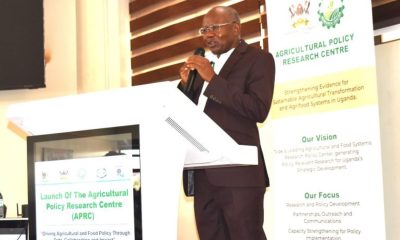

APRC Trains Graduate Students & Stakeholders in the Use of the African Agriculture Adaptation Atlas
-
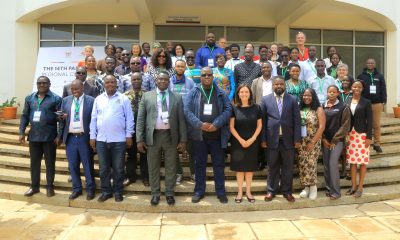

Harmonizing Africa’s Future through Musical Arts Education
-
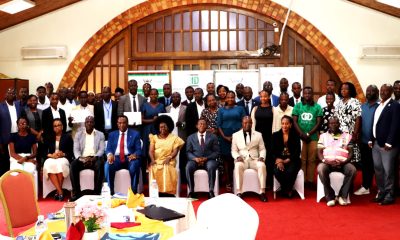

Swedish Ambassador Calls on Uganda to Lead Africa’s E-Mobility Revolution
-
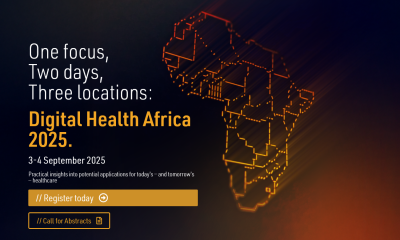

Call for Abstracts: Digital Health Africa 2025
-
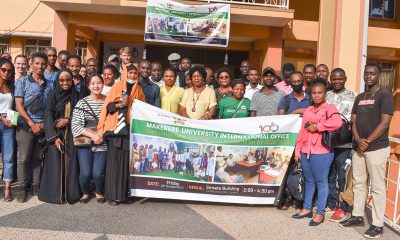

Undergraduate Admission Lists for International Applicants 2025/2026
-
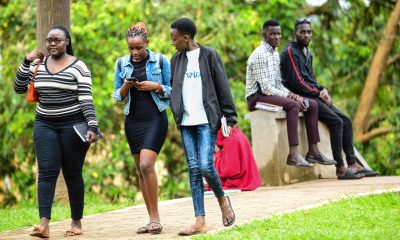

Admission Lists -Disability and District Quota Schemes 2025/26
Agriculture & Environment
APRC Trains Graduate Students & Stakeholders in the Use of the African Agriculture Adaptation Atlas
Published
12 hours agoon
July 3, 2025
The Agricultural Policy Research Centre (APRC), housed within the College of Agricultural and Environmental Sciences (CAES) at Makerere University, continues to play a pivotal role in shaping Uganda’s agricultural future through evidence-based policymaking. With a mission to ensure that agricultural policies are grounded in empirical research and data, APRC is actively investing in capacity-building initiatives that empower researchers, policymakers, and development actors.
In a significant stride toward building climate resilience in African agriculture, APRC recently organized a two-day intensive training workshop focused on the African Agriculture Adaptation Atlas (AAAA) – a state-of-the-art, web-based decision-support platform that facilitates the integration of climate data into agricultural planning and policy.

The workshop, held on Wednesday 25th and Thursday 26th June 2025 at the School of Agricultural Sciences, Makerere University, targeted two key groups: graduate students on the first day, and university faculty, government officials, and development practitioners on the second. This structure ensured tailored learning experiences for both emerging and seasoned professionals, helping to bridge the gap between academic research and real-world policy implementation.
The African Agriculture Adaptation Atlas (AAAA) is designed to provide dynamic, data-rich visualizations that support informed decision-making in agriculture and food systems across the continent. Through interactive maps and analytical tools, users can explore projected climate impacts, evaluate risks, and identify localized, climate-smart adaptation strategies.

Throughout the sessions, participants received hands-on training in a broad range of AAAA functionalities, including:
- Leveraging the Atlas for research and policy communication: Enhancing the ability of scientists and policy actors to translate complex climate data into actionable insights;
- Assessing projected climate impacts and associated agricultural risks: Essential for forward-looking planning and risk mitigation;
- Identifying climate-smart investment options, with a particular focus on the livestock sector, which is especially vulnerable to climate shocks;
- Analysing gendered vulnerabilities: Examining how climate change disproportionately affects women in agricultural communities;
- Understanding the implications of heat stress on agricultural productivity: Supporting targeted interventions to protect producers and their livelihoods;
- Estimating the economic returns of adaptation strategies: Aiding in prioritizing investments and allocating limited resources effectively.

Prof. Bernard Bashaasha, the APRC Coordinator, emphasized the importance of the training in advancing Africa’s adaptation agenda. “As climate change continues to threaten food security and disrupt livelihoods across the continent, tools like the AAAA, and the skills to use them effectively are essential. They empower decision-makers to craft policies that are adaptive, inclusive, and rooted in science,” he noted.
The workshop was coordinated by Dr. Florence Rwiza, Lecturer in the Department of Agribusiness and Natural Resource Economics at CAES.
More photos from the Training






Agriculture & Environment
NbS4Tea Project Team Makes Great Progress, Deploys Drones for Data Collection
Published
1 week agoon
June 24, 2025
****Funded by the Danish Fellowship Centre under Denmark’s Ministry of Foreign Affairs, NbS4Tea is a five-year initiative aimed at enhancing climate resilience and tea productivity in Uganda.
Launch of drones for data collection
The Nature-based Solutions for Tea (NbS4Tea) project has registered a significant milestone with the successful deployment of drones to improve environmental and agricultural data collection.
On 19th June 2025, the project team officially launched the drones at the Rwebitaba Tea Research Centre in Kyenjojo District, the project’s main research hub. The launch event included hands-on training sessions by Mr. Timothy Mutungi, a certified Remote Sensing Drone Pilot. Mr. Mutungi provided detailed instruction on drone operation, safety procedures, and data acquisition techniques specifically tailored to the project’s goals. The training was attended the core NbS4Tea researchers as well as students supported by the project.

By utilizing drone technology, the team will be able to capture high-resolution imagery and gather critical environmental data across vast tea-growing areas. This will enable more precise assessments of biodiversity, soil health, water use, and overall ecosystem services. The valuable insights generated will guide the development of sustainable, nature-based agricultural practices with the potential for widespread adoption throughout the tea industry.
About the NbS4Tea Project
NbS4Tea is a five-year initiative aimed at enhancing climate resilience and tea productivity in Uganda. Funded by the Danish Fellowship Centre under Denmark’s Ministry of Foreign Affairs and led by Dr Emmanuel Arthur from Aarhus University, the project is being implemented through a consortium of Ugandan and Danish institutions namely: Makerere University, the National Agricultural Research Organization (NARO), Uganda, Uganda Tea Association, Aarhus University, Denmark, and Kick-start International.

The primary objective of the project is to sustainably close the tea yield gap in Uganda by developing research-driven, nature-based solutions that enhance the climate resilience of tea production systems. This involves identifying climate-resilient tea varieties, integrating tea prunings and banana by-products, utilizing nitrogen-fixing agroforestry trees, and improving irrigation management. The approach emphasizes socio-economic feasibility, capacity building in research, and a market-oriented, multi-stakeholder collaboration to ensure both environmental and economic sustainability.
At Makerere University, the project is coordinated by Dr Alex Nimusiima from the Department of Geography, Geo-Informatics and Climatic Sciences at CAES. Other Project members are; Dr Grace Nakabonge from the Department of Forestry, Biodiversity and Tourism; Dr Prossy Nakawuka from the Department of Agricultural and Bio-systems Engineering; Dr Twaha Ali Basamba from the Department of Agricultural Production; and Dr Alice Turinawe from the Department of Agribusiness and Natural Resource Economics.

Specific objectives
- Identify and quantify climate change impacts on tea yield and quality based on historical and newly obtained data and novel data mining methods.
- Screen, select and recommend tea varieties adapted to abiotic (drought and heat) and biotic stresses (diseases and pests).
- Develop new knowledge on the potential of local waste biomass (tea prunings, banana pseudostems and peels) as soil amendments- mulch, compost, biochar, to recycle nutrients, improve soil fertility, increase carbon sequestration and alleviate drought.
- Reveal NbS through agroforestry combined with organic mulch, irrigation and resilient tea varieties that increase biodiversity and tea yield.
- Innovate new methods to enhance tea production under climate change through rainwater harvest and climate-smart irrigation infrastructure.
- Empower vulnerable groups (women, youth, and people with disabilities) in tea production and processing to ensure multi-actor involvement and socio-economic benefit outreach of the proposed NbS in tea cultivation and production.
- Identify export market strategies for NbS tea products, aligned with consumer preferences.

Progress thus far
Launched in January 2024, the project, organized in five work packages, has registered significant progress. Each of the work packages listed below supports one PhD student and one Masters’ student. The PhD students are: i) Mr. Adiga Hassan from the Department of Geography, Geo-Informatics and Climatic Sciences at CAES conducting research under work package 1; ii) Ms. Sarah Namayengo from the Department of Forestry, Biodiversity and Tourism conducting research under work package 2; Ms. Vivian Namutebi from the Department of Soil Science and Land Use Management undertaking research on work package 3; Mr. Keneth Chelimo from the Department of Agricultural and Biosystems Engineering conducting his research under work package 4; and Ms. Moreen Asasira from the Department of Agribusiness and Natural Resource Economics focusing on work package 5. The Masters students are: i) Ms. Evelyn Katasi from the Department of Environmental Management at CAES (work package 1), Mr. Vereriano Turyahebwa from Department of Forestry, Biodiversity and Tourism (work package 2); Mr. Ben Okurut from the Department of Soil Science and Land Use Management (work package 3); Mr. Augustine Okot from the Department of Agricultural and Biosystems Engineering (work package 4); and Mr. Augustine Kigozi from the Department of Agribusiness and Natural Resource Economics (work package 5)

Work packages and achievements registered
Work Package 1: Climate change impacts on tea yield and quality – Headed by Dr. Alex Nimusiima
This work package centres on the analysis of historical and projected climate conditions in the study area. It examines how current climate patterns influence tea production, as well as the potential effects of future climate change on tea yield and quality.
Progress
i) A household survey assessing the socio-economic status of tea farmers and the effects of climate variability on their livelihoods has been completed.
ii) The collected data has been cleaned, and the Masters student supported under this work package is currently writing her thesis based on the survey findings.
iii) A historical climate analysis of the study area has been conducted by the PhD student, who is now preparing a manuscript.

Work Package 2: Screening & selecting tea genotypes for resilience to abiotic and biotic stresses – Headed by Assoc. Prof. Grace Nakabonge
This work package focuses on evaluating existing tea genotypes for their resistance to pests and diseases, using chlorophyll fluorescence imaging as a diagnostic tool.
Progress
i) A screen house has been constructed to serve as the experimental site.
ii) Germplasm from two tea varieties is currently being cultivated in the screen house in preparation for the upcoming experiments.
iii) A drone has been acquired to assist in data collection for this work package.

Work Package 3: Evaluation of NbS for climate resilience, higher yield and biodiversity- Headed by Assoc. Prof. Twaha Ali Basamba
This focuses on the characterization of mulch and biochar derived from tea prunings to improve soil health. It also aims to quantify the added value of Nature-based Solutions (NbS) in enhancing tea productivity, promoting climate resilience, and supporting biodiversity.
Progress
- So far, Biochar has been produced from tea prunings and characterized.
- The Masters student supported under this work package is writing his thesis on the results of biochar characterization.

Work Package 4: Innovating smart and scalable irrigation technology for improved tea production- Headed by Dr. Prossie Nakawuka
This work package aims to develop and evaluate smart, scalable irrigation solutions to boost tea production. It focuses on assessing how irrigation impacts tea yield and quality, measuring water use efficiency, and analyzing the economic returns of irrigation practices. Additionally, it explores deficit irrigation and climate-resilient strategies to ensure sustainable tea farming in changing environmental conditions.
Progress
- The irrigation infrastructure is now in place and fully operational at Rwebitaba Tea Research Centre in Kyenjojo District.
- The experimental plots for irrigation experiments are already in place with water pipes.

Work package 5: Socio-economic assessment of tea-agroforestry and selected tea varieties – Headed by Dr. Alice Turinawe
This work package emphasizes co-creation within multi-stakeholder innovation networks to evaluate the economic feasibility and market access of tea agroforestry systems. It also focuses on promoting gender balance and understanding consumer valuation of Nature-based Solutions (NbS) tea from Uganda.
Progress
To date, two co-creation workshops have been successfully conducted and the Masters student under this work package is currently analyzing the workshop results as part of their research.

Expected outputs and outcomes
- Increased tea production, productivity, and biodiversity through the adoption of NbS.
- Increased research and technical capacity of Makerere and R-ZARDI.
- Holistic stakeholder insight on economic feasibility, consumer acceptance and market access strategies, especially for vulnerable groups in the tea value chain.
- Increased job prospects for youth and women in tea production sub-sectors.
- Improved social status and increased incomes of tea farmers, traders, and exporters.
- Improved economic and environmental quality by recycling biomass waste into value-added products dedicated to soil enhancement.
- 4+ high-yielding tea genotypes adapted to drought and heat, diseases and pests.
- 15+ scientific articles, conference presentations.
- Five PhDs and Five MSc degrees.
- Market access assessment and empowerment.

Details on the project: https://news.mak.ac.ug/2024/01/new-caes-project-to-improve-tea-production-in-uganda/
More photos from the event



Agriculture & Environment
New Mak-CAES Project to Spur Green Growth in East Africa
Published
3 weeks agoon
June 13, 2025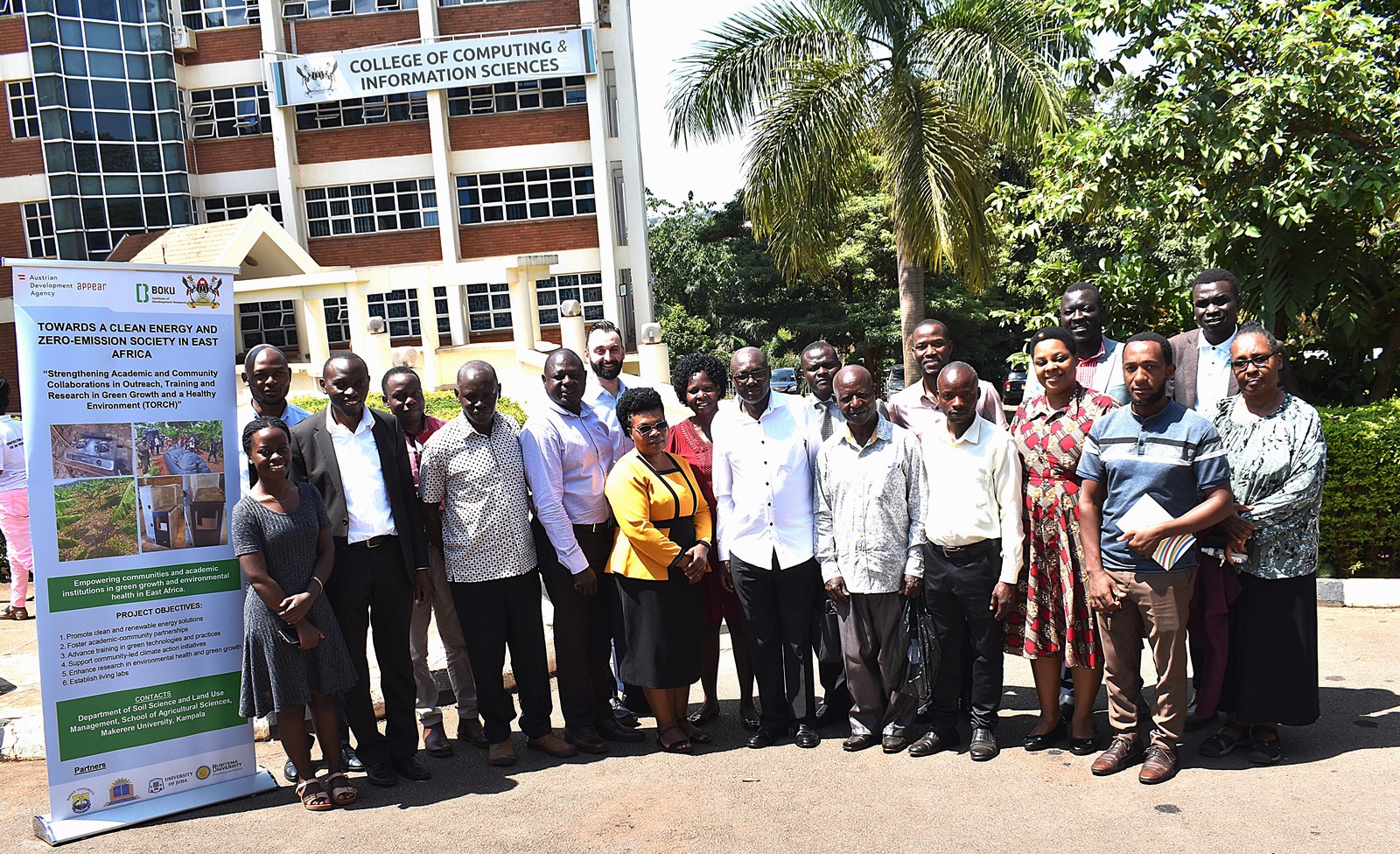
Makerere University, through its Department of Soil Science and Land Use Management at the College of Agricultural and Environmental Sciences (CAES), has launched a new project aimed at fostering green growth and promoting sustainable development across East Africa. This initiative aligns with global efforts to combat climate change and create eco-friendly, low-carbon communities through collaborative research, education, and technology.
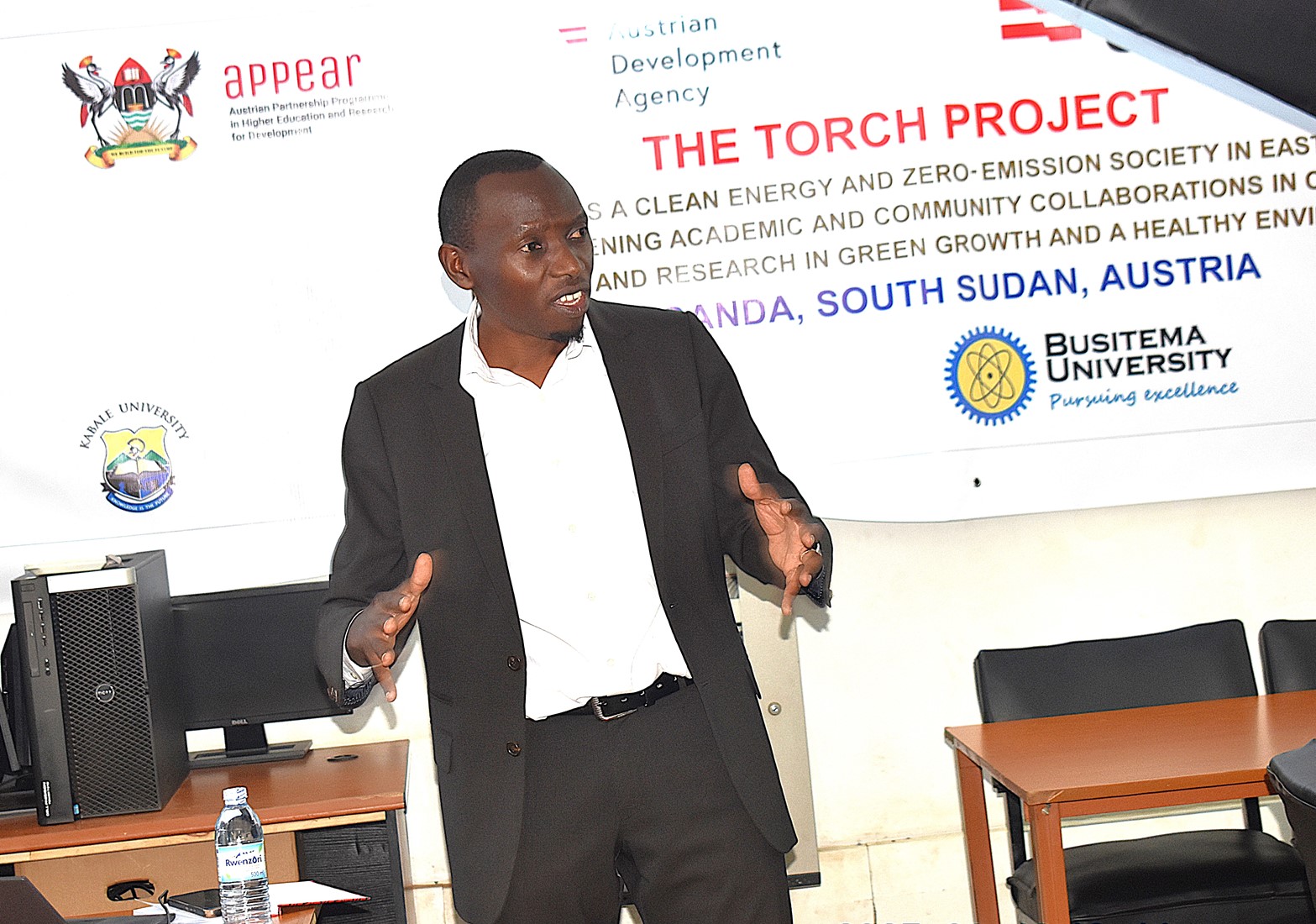
Introducing the TORCH Project: Towards a Clean Energy and Zero-Emission Society
The two-year project, code-named TORCH (Towards a Clean Energy and Zero-emission Society in East Africa), seeks to strengthen cooperation between academia and local communities to promote green growth and environmental sustainability. Funded by the OeAD-GmbH under the Austrian Partnership Programme in Higher Education Research for Development (APPEAR), TORCH focuses on clean energy solutions, carbon emission reduction, and community empowerment through training, research, and co-creation of green technologies.
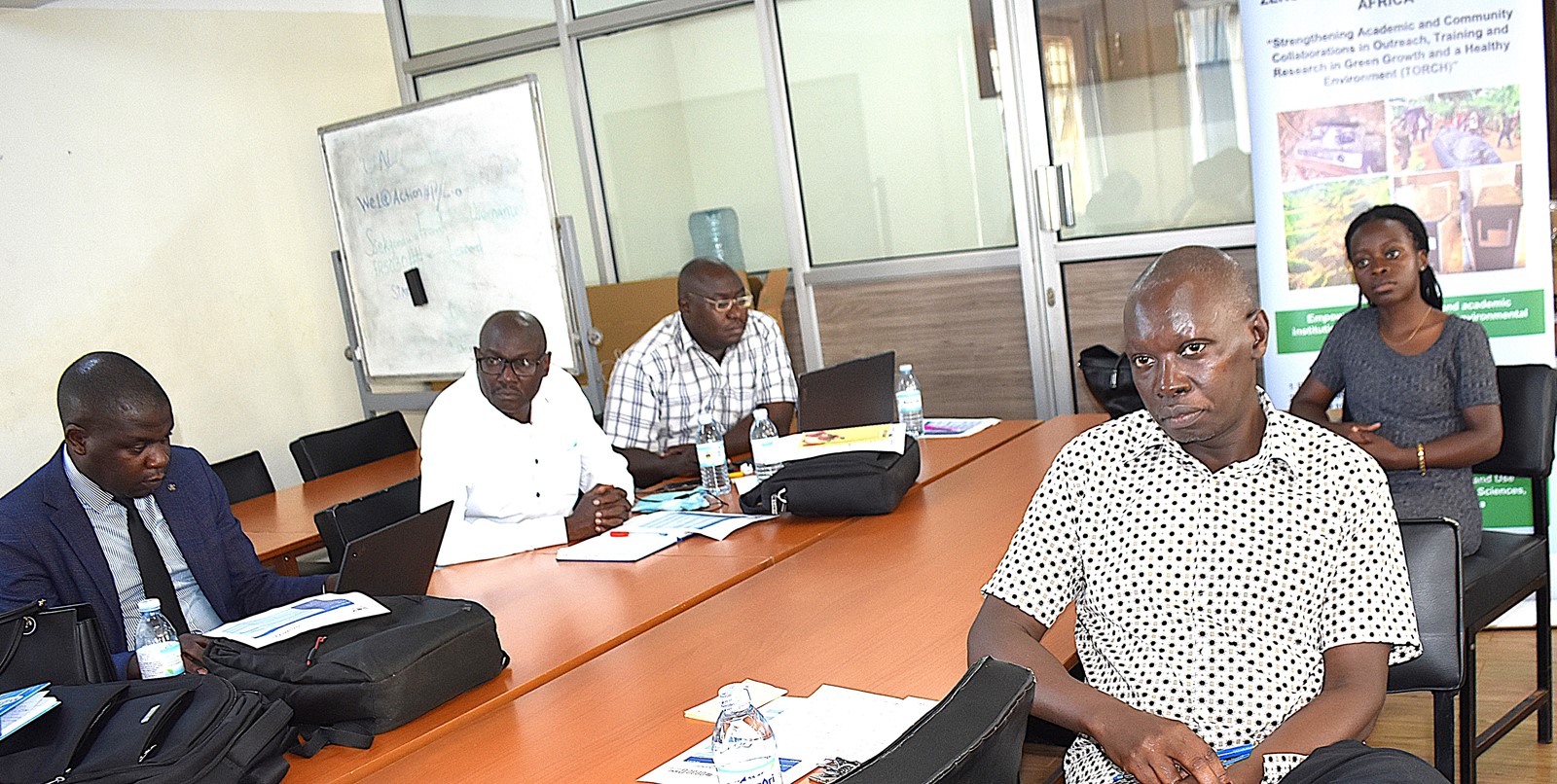
Officially launched by the Principal of CAES, represented by Dr. Paul Mukwaya, Head of the Department of Geography, Geo-Informatics and Climatic Sciences at Makerere University, TORCH builds upon existing East African government policies. The project will implement the innovative concept of living labs, where universities, communities, and stakeholders co-design, co-create, and co-produce affordable, reliable green technologies tailored to local needs.
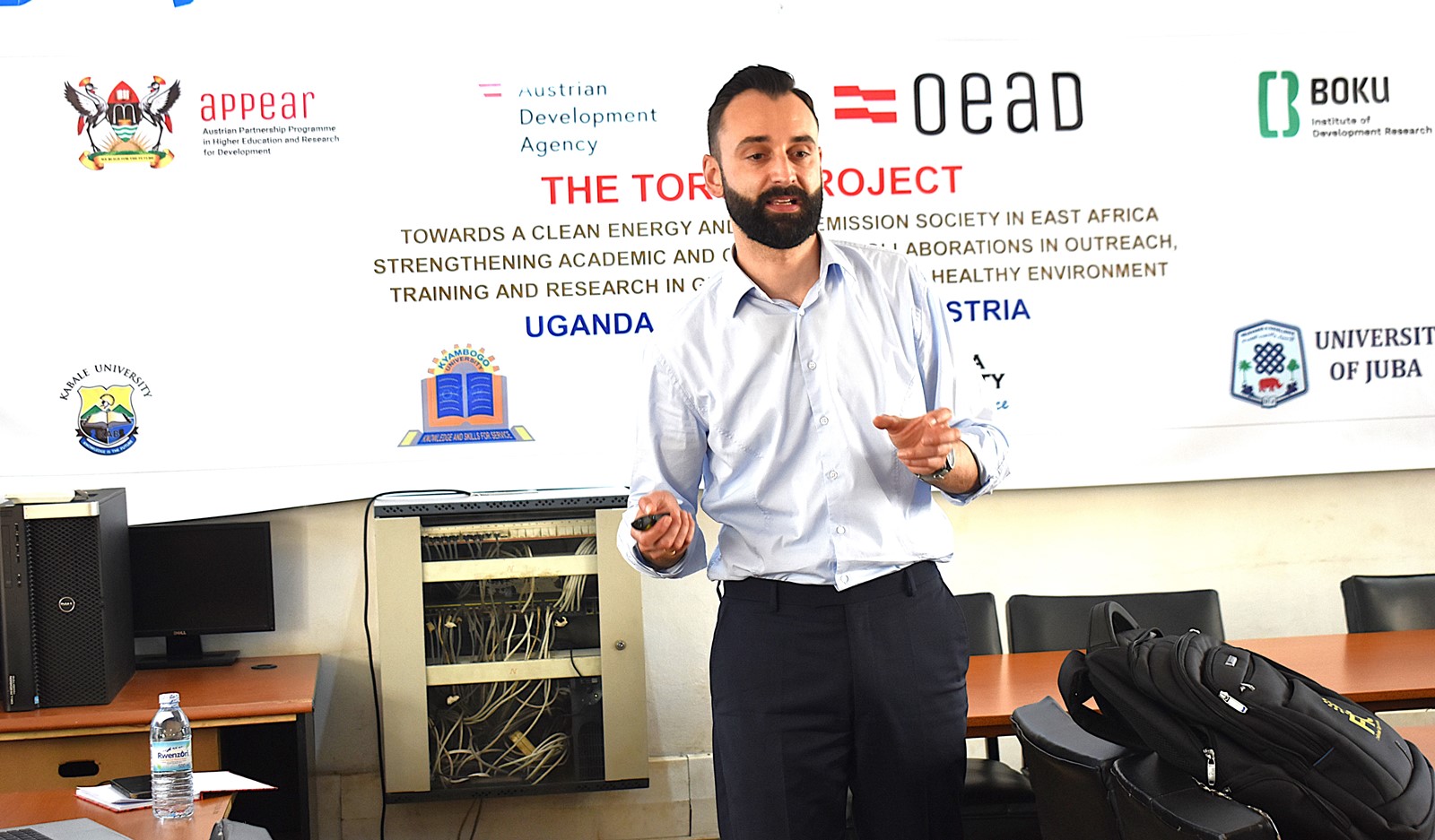
Key Objectives and Activities
TORCH aims to:
- Enhance teaching on green growth by integrating principles into selected academic curricula.
- Establish three living laboratories in Central, South Western, and Eastern Uganda to boost co-creation on energy efficiency and low-carbon emissions.
- Increase human capacity through short courses, field research, and training.
- Empower women in science and technology.
- Promote novel green technologies and support policy transformation.
- Strengthen partnerships among universities in East Africa.
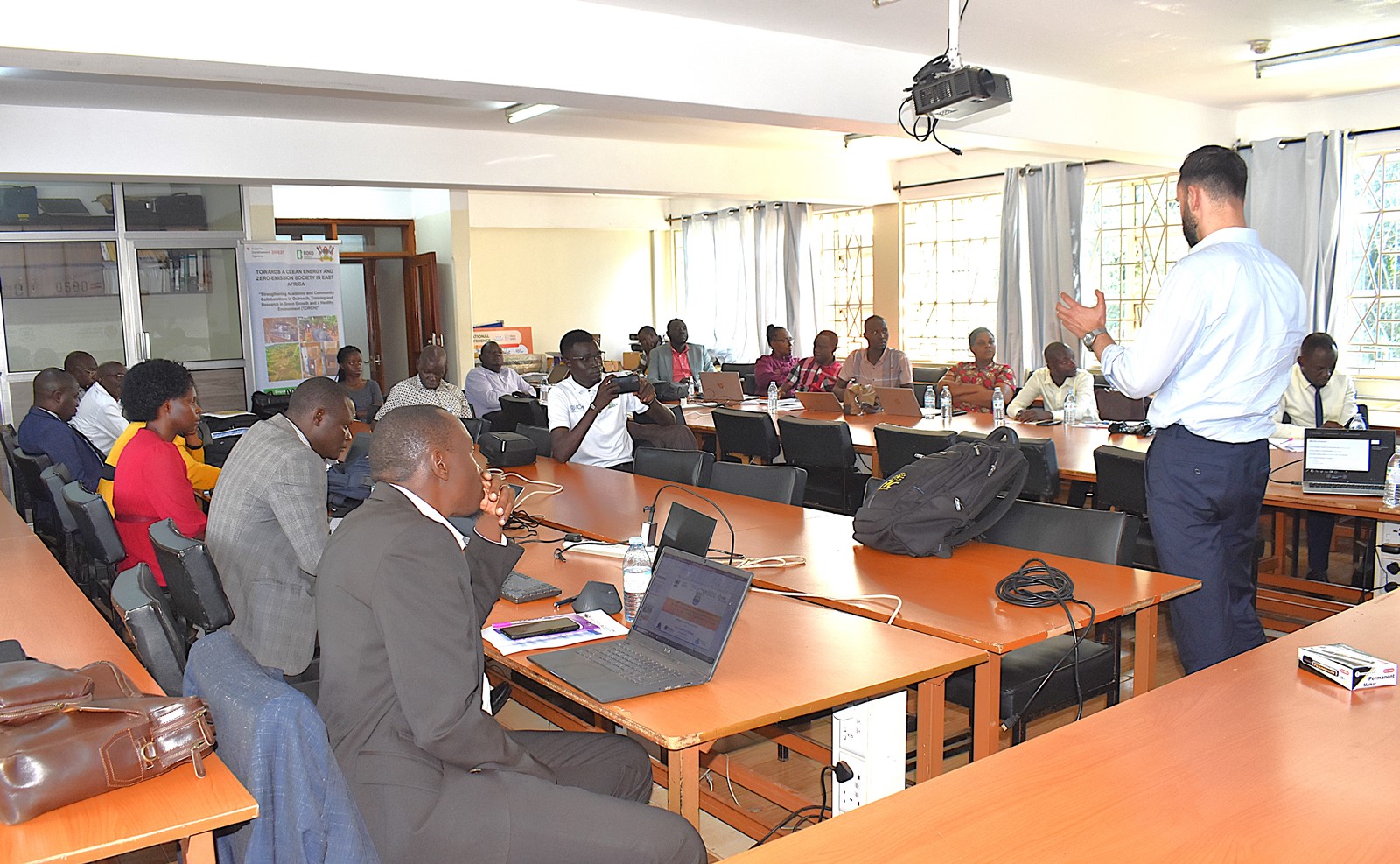
These activities directly contribute to achieving several Sustainable Development Goals (SDGs), including SDGs 4 (Quality Education), 5 (Gender Equality), 6 (Clean Water and Sanitation), 7 (Affordable and Clean Energy), 12 (Responsible Consumption and Production), and 13 (Climate Action), while also reducing health risks and conserving the environment.
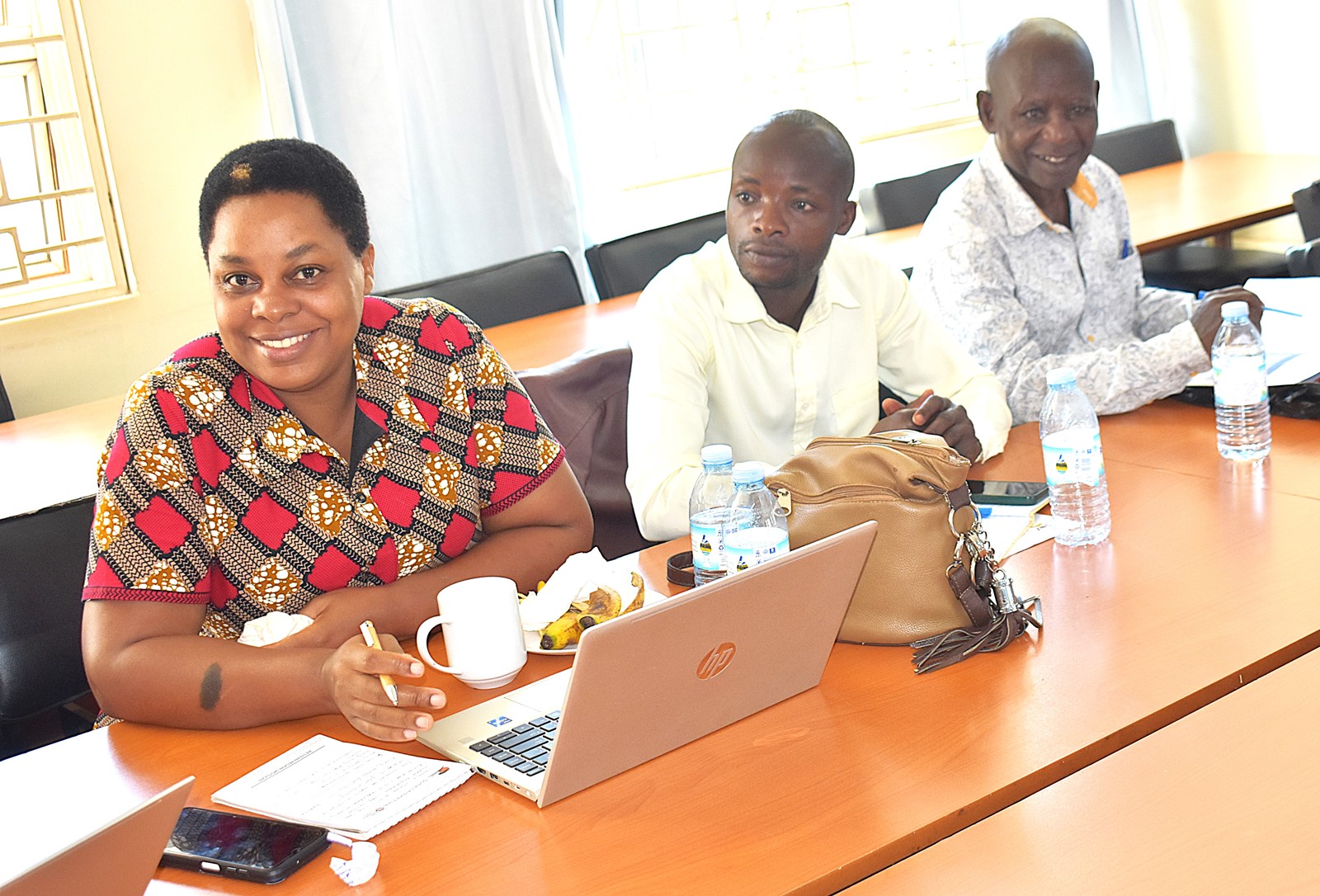
Leadership and Partner Institutions
The overall project coordinator is Dr. Patrick Musinguzi, Lecturer in the Department of Soil Science and Land Use Management at Makerere University. TORCH involves several partner institutions, including: Makerere University (Uganda), University of Natural Resources and Life Sciences, Vienna (Austria), Kabale University (Uganda), Busitema University (Uganda), Kyambogo University (Uganda), and the University of Juba (South Sudan).

Highlights of the Launch Ceremony
During the launch ceremony held in the GIS Lab at Makerere University, and attended by representatives from the partner institutions, Dr. Musinguzi presented an overview of TORCH, outlining key strategies for implementation and expected outcomes. Central to the project’s strategy is the integration of green growth principles into Makerere University’s academic curriculum. This will be formally proposed to the University Management for adoption. Additionally, the project aims to strengthen the university’s research agenda in this critical area. This will involve supporting faculty and student-led research projects and generation of evidence-based insights on green growth to influence policy at both local and national levels. There are also plans to establish three living labs in Central, South Western, and Eastern Uganda to serve as practical hubs for advancing green growth.
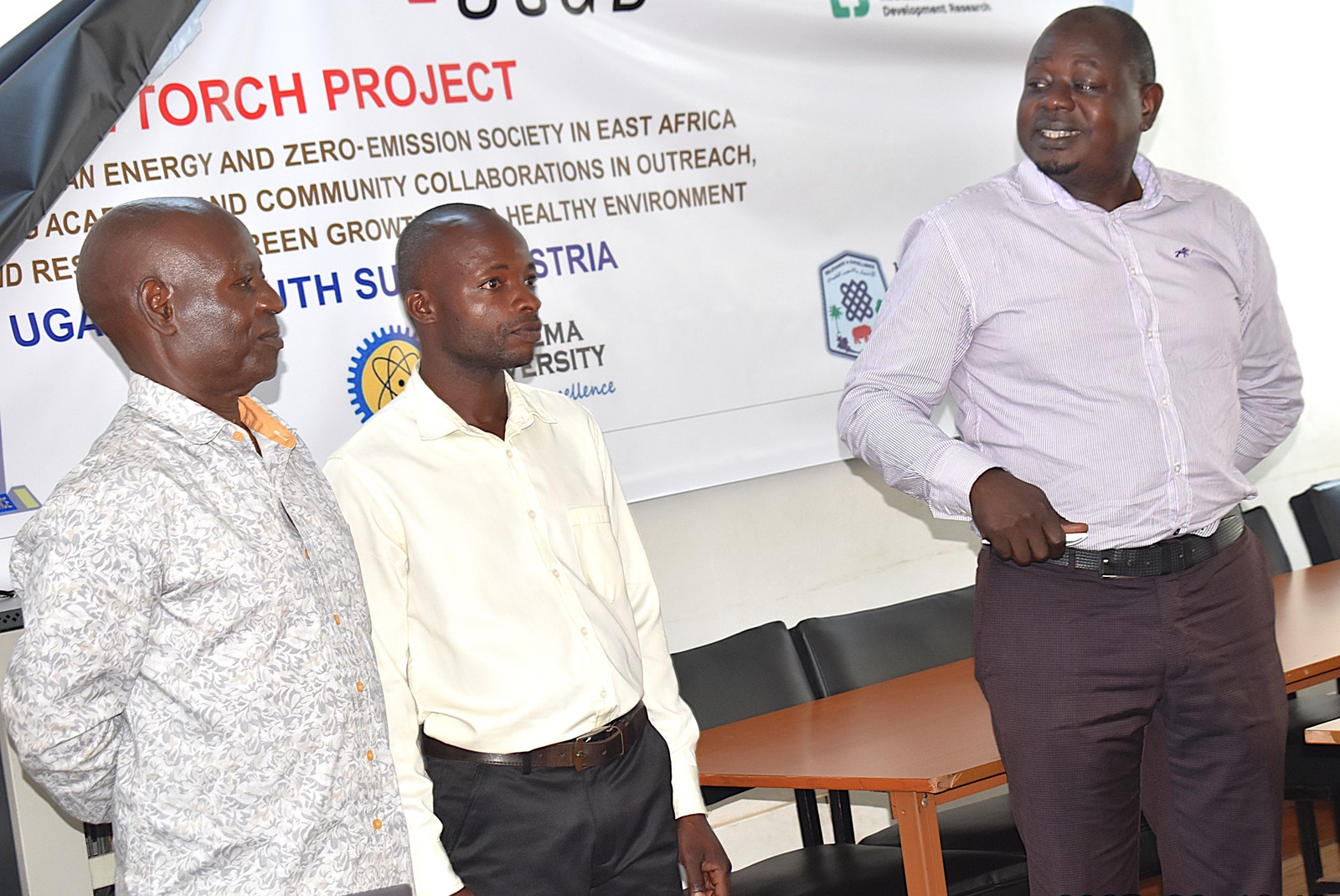
Expert Insights on Community Engagement
In his presentation, Mr. Andreas Bauer from the University of Natural Resources and Life Sciences, Vienna provided valuable insights into the critical role that living labs play in promoting sustainable, green growth. Highlighting practical examples and innovative approaches, Mr. Andreas Bauer emphasized how living labs serve as dynamic platforms for collaboration between researchers, industry stakeholders, and local communities, enabling real-world experimentation and the development of eco-friendly solutions that drive environmental and economic progress.
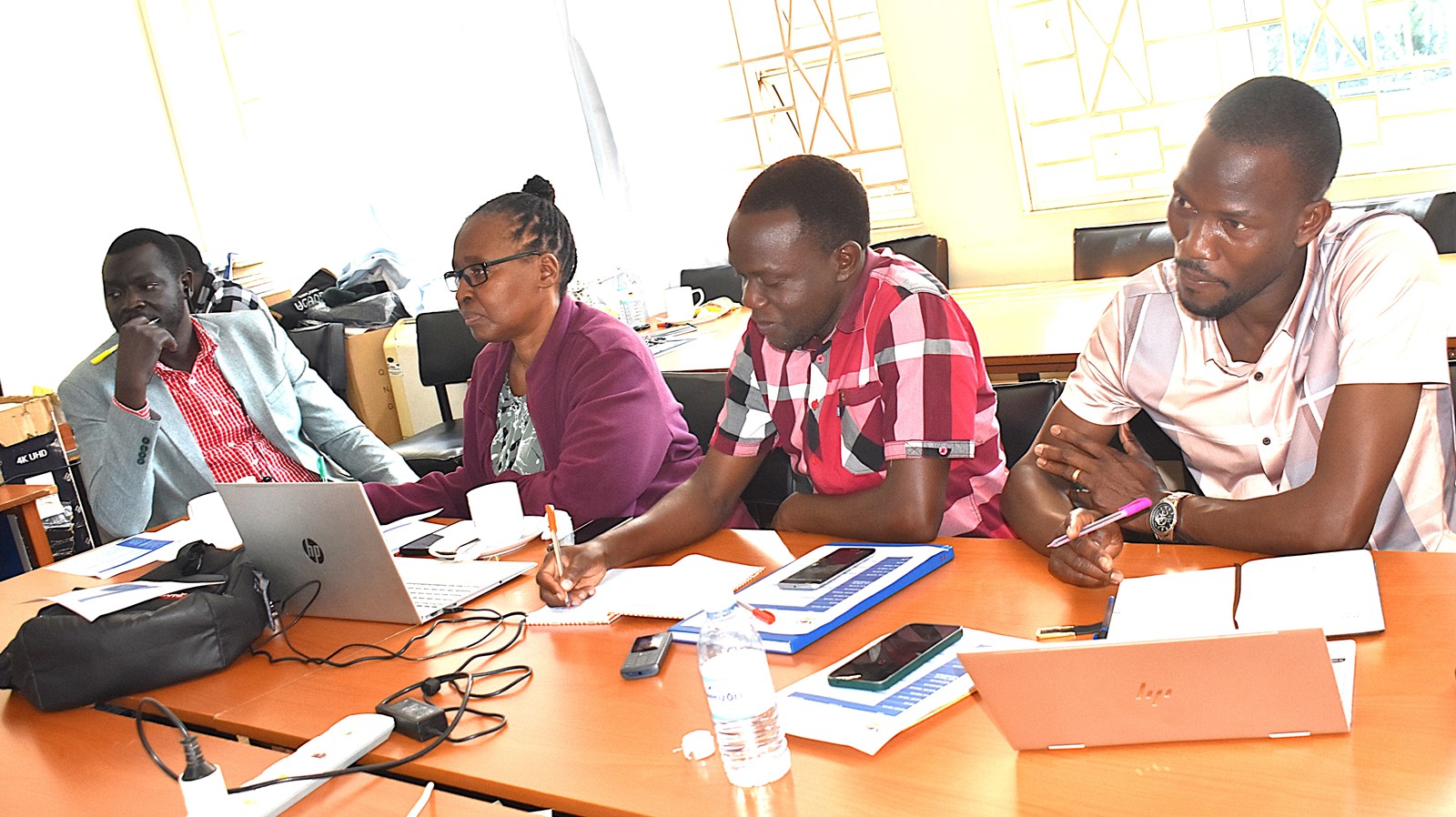
To emphasize the importance of collaboration between local communities and the academia, Mr. Kayanja Susane, a farmer from Kawumu Village in Luweero District, explained that, with guidance and support from the project team, he learned to produce biogas from animal waste -a reliable source of energy that reduces dependence on traditional fuels, subsequently minimizing environmental degradation.
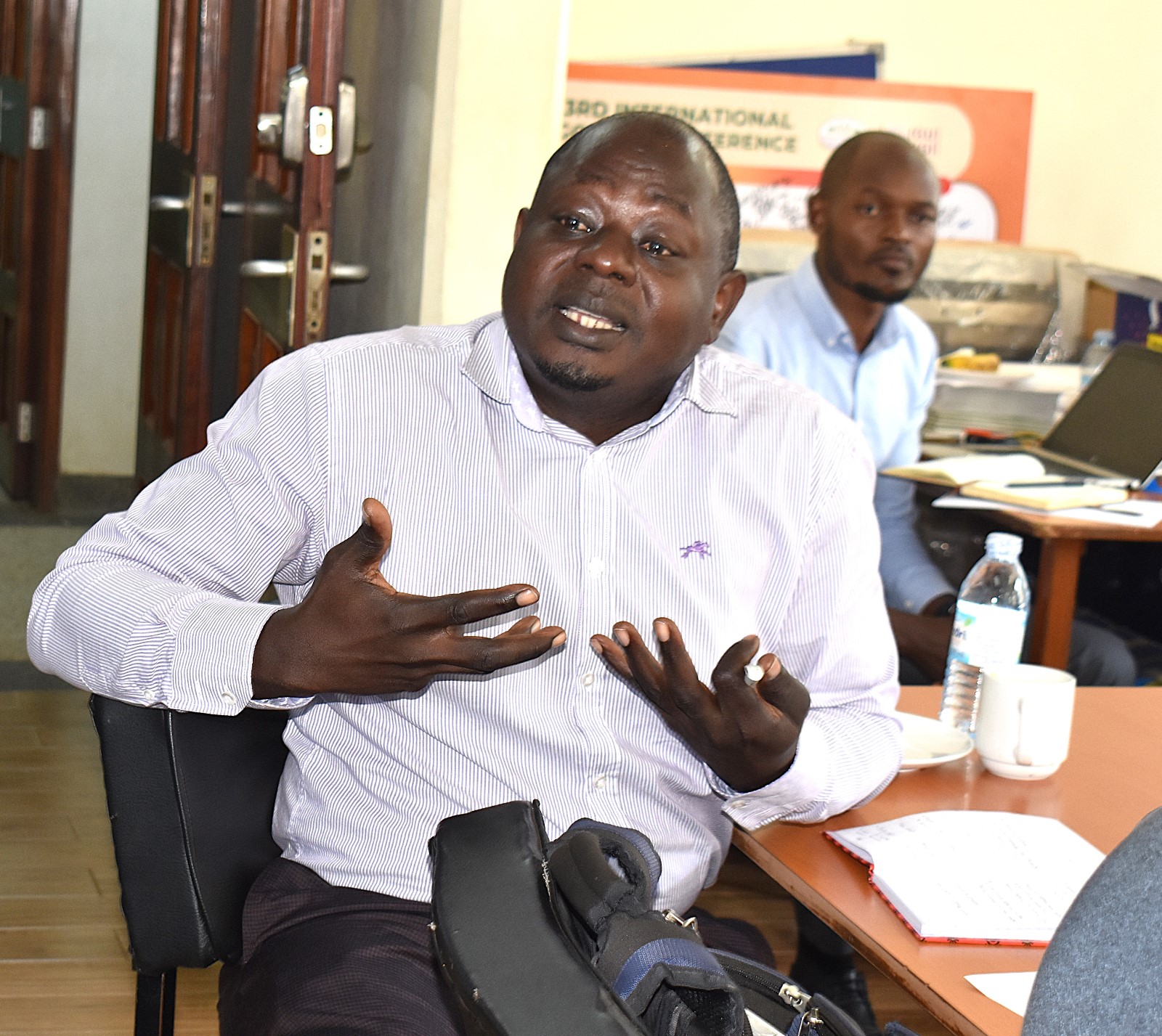
Research Focus
As part of the strategy to guide implementation, the project team brainstormed potential ecological and social indicators of low emissions in homesteads, and proposed several research areas to support green growth. Proposed research areas include:
- Life cycle analysis
- Circular economy practices within homesteads
- Gender integration and the intersection of gender with green growth
- The role of livestock in promoting green growth
- Evaluating the impact of interventions on total emissions
- Barriers to adopting green innovations
- The use of indigenous knowledge in promoting green growth
Addressing the participants, the Principal of the College of Agricultural and Environmental Sciences (CAES), represented by Dr. Paul Mukwaya, Head of the Department of Geography, Geo-Informatics, and Climatic Sciences at Makerere University, commended the project as a timely initiative aligned with the University’s research agenda. He underscored the importance of collaborating with other stakeholders, noting that similar projects have been conducted within and outside Makerere. Dr. Mukwaya called for the adoption of the theory of change framework to ensure the project delivers measurable, sustainable impacts that extend beyond policy briefs and gender mainstreaming, ultimately contributing to lasting green transformation in the region. He expressed appreciation to the project funders for their unwavering support to Makerere University.
Trending
-

 General6 days ago
General6 days agoMature Age Scheme Exam Results for 2025/2026
-

 General1 week ago
General1 week agoFreshers’ Joining Instructions 2025/2026
-

 General2 days ago
General2 days agoUndergraduate Admission List Self Sponsorship Scheme 2025/2026
-

 General2 weeks ago
General2 weeks agoMastercard Foundation Board pays its inaugural visit to Makerere University
-

 General1 week ago
General1 week agoUVCF Makes Case for HEAC Programme
